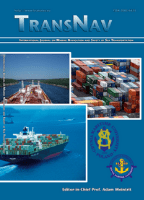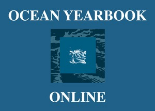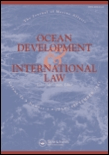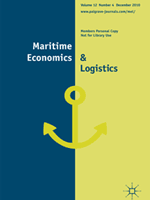
TransNav-International Journal on Marine Navigation and Safety of Sea Transportation
Scope & Guideline
Charting New Waters in Ocean Engineering.
Introduction
Aims and Scopes
- Maritime Safety and Accident Prevention:
Research aimed at understanding, preventing, and mitigating maritime accidents, including human factors, risk assessment, and safety management systems. - Technological Innovations in Navigation:
Exploration of new technologies and methodologies enhancing navigation, including autonomous systems, simulation tools, and digital navigation aids. - Environmental Impact and Sustainability:
Studies addressing the environmental impact of maritime operations, advocating for sustainable practices and technologies in shipping and port operations. - Policy and Regulatory Frameworks:
Analysis of policies, regulations, and international standards affecting maritime navigation and safety, including compliance with COLREGs and SOLAS. - Educational Approaches in Maritime Training:
Research on educational methodologies and training programs for maritime professionals to improve competencies and safety awareness. - Port Operations and Logistics Management:
Investigation into operational efficiency within ports, including logistics, resource management, and infrastructure development. - Human Factors in Maritime Operations:
Examination of the psychological and cognitive aspects influencing maritime operations, including crew performance and decision-making processes.
Trending and Emerging
- Artificial Intelligence and Automation:
A significant trend towards integrating AI and automation in maritime operations is evident, with research exploring their implications for safety, efficiency, and decision-making. - Cybersecurity in Maritime Operations:
An increasing focus on cybersecurity risks and strategies to protect maritime systems from cyber threats, reflecting the growing awareness of vulnerabilities in digital infrastructures. - Sustainable Practices and Green Technologies:
A notable interest in sustainability, with research dedicated to green technologies, alternative fuels, and methods to reduce the ecological footprint of maritime activities. - Impact of Climate Change on Navigation:
Emerging studies addressing the effects of climate change on navigation routes, operational seasons, and safety protocols, highlighting the urgency of adapting to environmental changes. - Human Factors and Crew Welfare:
A growing emphasis on understanding human factors, crew welfare, and mental health in maritime operations, aiming to enhance safety and job satisfaction among seafarers. - Advanced Simulation and Training Tools:
Increased exploration of advanced simulation technologies for training and operational planning, indicating a shift towards more immersive and effective learning experiences in maritime education.
Declining or Waning
- Conventional Maritime Security Threats:
Research on traditional maritime security threats has decreased, likely due to the emergence of new challenges such as cyber threats and environmental concerns overshadowing older paradigms. - Historical Analysis of Maritime Practices:
There has been a noticeable reduction in studies focusing on historical maritime practices and technologies, as contemporary issues take precedence in research agendas. - Basic Navigation Techniques:
Interest in fundamental navigation techniques appears to be waning, as the focus shifts towards advanced technologies and automated systems. - Standardization of Equipment:
The focus on standardization of GNSS/RNSS shipborne equipment has diminished, possibly due to the increasing complexity and rapid development of navigation technologies.
Similar Journals

Maritime Business Review
Charting New Waters in Transportation ResearchMaritime Business Review, published by Emerald Group Publishing Ltd, is a leading academic journal dedicated to advancing knowledge in the fields of maritime business, transportation, and management. With an ISSN of 2397-3757 and E-ISSN of 2397-3765, this journal has established itself as a vital resource for researchers and practitioners alike, particularly noted for its contribution to the domains of Business and International Management, Management of Technology and Innovation, Strategy and Management, and Transportation. The journal is ranked in the prestigious Q2 quartile in each of these categories as of 2023, reflecting its impactful research and relevance in contemporary academic discourse. Although currently not an Open Access journal, it offers robust access options through institutional subscriptions—making its rich repository of cutting-edge research readily available to scholars and professionals. Since its inception in 2016 and continuance to 2024, Maritime Business Review has emerged as an essential platform for both emerging and established academics to share innovative insights and enhance collaborative efforts within the international maritime business community.

International Journal of Transport Economics
Connecting Economic Theory with Transport PracticeWelcome to the International Journal of Transport Economics, a premier platform published by FABRIZIO SERRA EDITORE that explores the intricate relationship between transport economics and its impact on societal progress. Established to foster academic discourse, this journal serves as a vital resource for researchers, professionals, and students in the fields of economics, transportation, and public policy. With a commitment to publishing high-quality, peer-reviewed articles, the journal delves into essential topics such as transport policy analysis, infrastructure economics, and sustainable transportation solutions. Although it operates under a traditional subscription model, the journal remains dedicated to disseminating crucial findings that influence transport strategies worldwide. Nestled in the heart of Pisa, Italy, the International Journal of Transport Economics stands as a beacon of knowledge, playing a pivotal role in shaping the future of transport economics and promoting innovative research in the discipline.

Ocean Yearbook
Bridging Disciplines for a Sustainable Ocean FutureOcean Yearbook, published by BRILL, is a leading academic journal in the field of maritime law and ocean governance, providing a comprehensive platform for researchers and practitioners in this vital area. With an ISSN of 0191-8575 and E-ISSN 2211-6001, this journal offers valuable insights and critical analyses on contemporary issues affecting the world's oceans, promoting interdisciplinary dialogue among scholars in law, environmental studies, and policy-making. Currently ranked in the Q2 quartile for Law, this journal is positioned among the top-tier publications, reflecting its commitment to academic excellence and relevance. Ocean Yearbook is essential reading for those looking to stay abreast of legal developments and emerging challenges in ocean governance, contributing significantly to policy discussions and academic scholarship worldwide. Its accessibility through subscription, combined with its ongoing commitment to high-quality research, makes it an indispensable resource for students, researchers, and professionals dedicated to understanding and protecting marine ecosystems.

OCEAN DEVELOPMENT AND INTERNATIONAL LAW
Exploring Interdisciplinary Solutions for Marine ChallengesOCEAN DEVELOPMENT AND INTERNATIONAL LAW, published by Taylor & Francis Inc, is an esteemed journal dedicated to the interdisciplinary study of ocean governance, environmental law, and international relations concerning marine resources. With an ISSN of 0090-8320 and an E-ISSN of 1521-0642, this journal serves as a vital platform for researchers, legal scholars, and policymakers interested in the evolving challenges of ocean development in a globalized context. The journal has established itself as a resourceful publication, evidenced by its ranking in the 2023 Scopus categories, where it is positioned in the 75th percentile for Law and the 66th percentile for Political Science and International Relations. Operating for over four decades, from 1973 until 2024, it is pivotal for advancing knowledge and fostering dialogue on critical issues such as environmental sustainability, international maritime policies, and legal frameworks governing the seas. Despite being a subscription-based journal, OCEAN DEVELOPMENT AND INTERNATIONAL LAW remains influential, offering significant insights that contribute to the development of effective legal instruments and governance strategies for oceanic resources.

Maritime Economics & Logistics
Advancing Knowledge in Maritime Logistics.Maritime Economics & Logistics, published by Palgrave Macmillan Ltd, is a premier journal in the field of maritime studies, focusing on the intersection of economics, logistics, and transportation. With an impressive impact factor and positioned within the Q1 quartile for *Economics, Econometrics and Finance (miscellaneous)* and Q2 in *Transportation*, this journal is recognized as a beacon of scholarly excellence. Spanning from its inception in 1999 to present, it aims to provide insightful analyses and innovative solutions to the challenges faced by the maritime industry, making it an essential resource for researchers, professionals, and students. With Scopus rankings that place it among the top-tier journals in both *Economics* and *Social Sciences*, it fosters a collaborative environment for the dissemination of cutting-edge research and practical developments in maritime economics and logistics. Join a vibrant community of scholars and enhance your understanding of this critical field.

Journal of Space Safety Engineering
Pioneering research for a safer journey into space.The Journal of Space Safety Engineering, published by ELSEVIER, is a pioneering platform dedicated to advancing the field of aerospace safety and engineering. Since its inception in 2014, this journal has catered to researchers and professionals focusing on the crucial intersection of aerospace engineering and safety, risk, reliability, and quality management. With an ISSN of 2468-8975 and E-ISSN of 2468-8967, it has established itself within the academic community, currently holding a Q3 ranking in both Aerospace Engineering and Safety, Risk, Reliability, and Quality categories, according to the 2023 metrics. The journal, which covers converged years up to 2024, is instrumental for those seeking to explore innovative safety solutions in space missions and exploration, making it an essential resource for students, industry professionals, and researchers alike. Although it is not open access, it remains a credible source of impactful studies that contribute to enhancing safety protocols and engineering practices in aerospace endeavors. With a strong focus on rigorously vetted research, the Journal of Space Safety Engineering ensures that important advancements in this dynamic and vital field are shared widely among experts and stakeholders.

Transportation Safety and Environment
Elevating standards in transportation safety and environmental impact.Transportation Safety and Environment is an esteemed open-access journal published by Oxford University Press, dedicated to advancing the field of transportation safety and environmental sustainability. Since its inception in 2019, the journal has rapidly gained recognition with an impressive Q2 category ranking in Control and Systems Engineering, Engineering (miscellaneous), and Safety, Risk, Reliability and Quality as of 2023. With an E-ISSN of 2631-4428, it provides a platform for high-quality research that addresses critical safety challenges and environmental impact within the transportation sector, covering a wide array of topics from vehicle safety measures to ecological considerations in transportation infrastructure. The journal’s open-access model promotes widespread distribution and accessibility of research findings, enabling researchers, professionals, and students to engage with the latest advancements and contribute to future developments in the field. Located in the heart of the United Kingdom at Great Clarendon St, Oxford OX2 6DP, England, Transportation Safety and Environment stands at the forefront of fostering innovative solutions for safer and more sustainable transportation practices worldwide.

Maritime Transport Research
Exploring New Horizons in Maritime TransportMaritime Transport Research is a cutting-edge journal dedicated to advancing knowledge and innovation within the field of maritime transport. Published by ELSEVIER, this Open Access journal has been active since 2020, providing researchers, professionals, and students with free and unrestricted access to high-quality research content. With an impressive impact factor and categorized in the Q2 quartile for the field of Transportation, this journal ranks #50 out of 141 in Scopus' Social Sciences _ Transportation category, placing it in the 64th percentile among its peers. Maritime Transport Research aims to foster interdisciplinary dialogue and promote scholarly advancements by publishing original research, reviews, and case studies that address the complexities and dynamics of maritime logistics, policy, and technology. Located in the United Kingdom, this journal is a vital resource for anyone engaged in maritime studies, highlighting its commitment to supporting the academic community through rigorous and impactful research.

Transactions on Maritime Science-ToMS
Pioneering Insights for a Sustainable Maritime FutureTransactions on Maritime Science-ToMS is a distinguished journal published by the FAC MARITIME STUDIES in Croatia, dedicated to the exploration and dissemination of cutting-edge research across multiple disciplines within maritime studies, including Automotive Engineering, Law, Ocean Engineering, Transportation, and Water Science and Technology. Since its inception, this journal has made significant strides in impacting these fields, as evidenced by its recent Scopus ranks and impressive quartile classifications, with recognitions in Q2 and Q3 across various categories. The journal operates on an open-access model, enhancing the visibility and accessibility of important research findings to professionals, researchers, and students alike. In an era where maritime challenges are at the forefront of global discourse, ToMS aims to foster interdisciplinary communication and innovation to address pressing issues in maritime science and engineering. As such, it serves as a vital resource for advancing knowledge and promoting best practices within both academic and applied contexts.

Journal of Aerospace Information Systems
Exploring New Frontiers in Aerospace EngineeringJournal of Aerospace Information Systems, published by the American Institute of Aeronautics and Astronautics, is a premier scholarly platform dedicated to advancing the interdisciplinary field of aerospace information systems. With a focus on innovative research and practical applications, this journal supports the dynamic integration of aerospace engineering, computer science, and electrical engineering. Positioned in Q2 quartiles for 2023 in its respective categories, it ranks notably in Aerospace Engineering (#52/153) and Electrical and Electronic Engineering (#357/797), indicating its significant influence within the scientific community. Research published within its pages addresses a diverse range of technological advancements and applications that are vital for the development of contemporary aerospace systems. As an open-access journal, it facilitates broader dissemination of knowledge, allowing researchers, professionals, and students to engage with cutting-edge discoveries and methodologies. With its competitive impact and commitment to fostering innovation, the Journal of Aerospace Information Systems is an essential resource for anyone involved in the burgeoning field of aerospace technology.